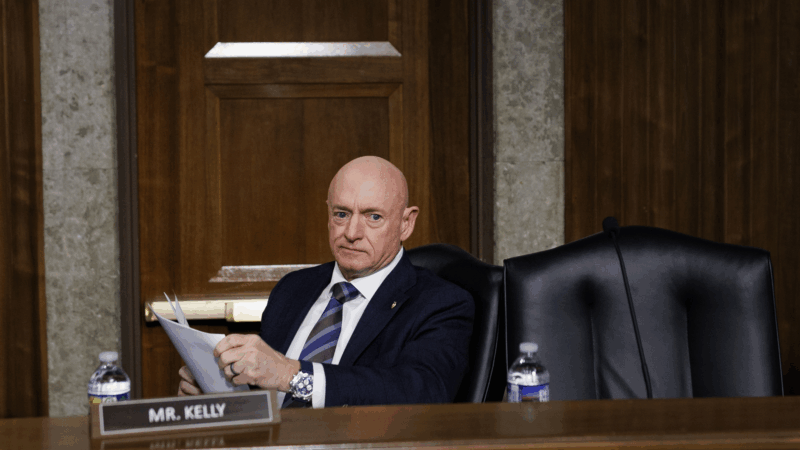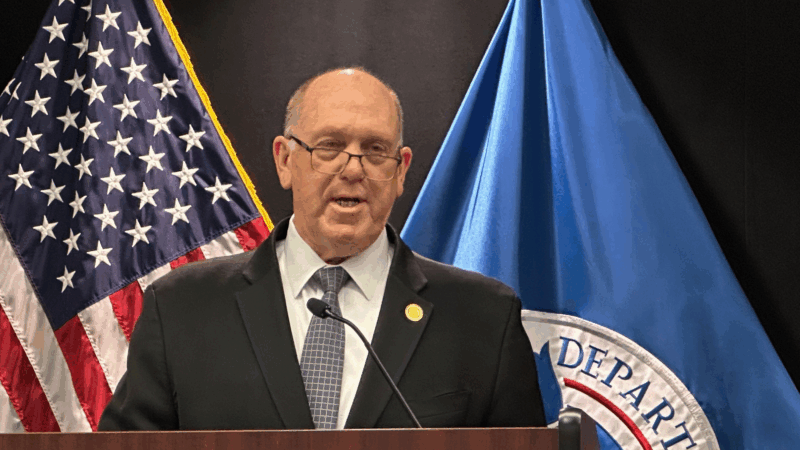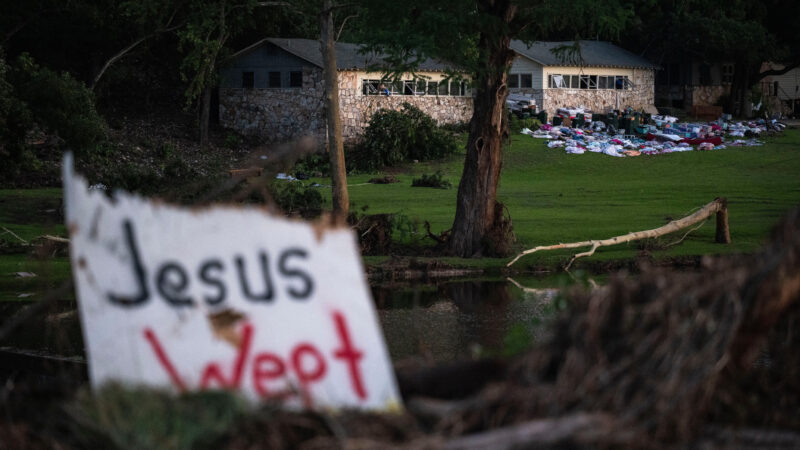The Politics of School
The state of Alabama spent more than 4 billion dollars to fund education last year for Kindergarten through 12th grade and colleges and universities. This year, a lackluster economy and lower than average revenue collections caused the state education fund to be declared in proration, that is, cut across the board.
So, it’s a natural question for the 3 Republicans, 5 Democrats and 1 Libertarian running for governor. What are their plans for improving education funding? Some say there’s not a funding problem at all. It’s all in the math. Others have plans to boost funding.
All agree there’s a problem.
Bob Riley is one of the Republicans on tomorrow’s (June 4 primary election) ballot.
‘First thing I think you have to do is something about earmarking. We’ve got to do that. You’ve got to give local control back to the local officials.
The Third district Congressman from Ashland, Riley says he doesn’t believe there’s a lack of money going into the Education Trust Fund. He says the money that’s there should be locally controlled so school administrators can spend it on what they need.
‘I’ve talked to superintendents all over this state and they say this year I’ve got to buy so many buses…I don’t need buses; I need another teacher in the second grade. I’ve got to buy so many new textbooks…my textbooks are fine. We’ve got to get back to the point where we have some accountability at the local level.’
While Congressman Riley admits tax reform is needed in Alabama to make school funding more efficient, he says proration wouldn’t be necessary if the governor and legislature figured in ‘previous year’ funding methods instead of using projections based on inflation or added costs that may or may not be accurate. He says most other states have switched to using the previous year method and it’s kept a constant flow of money in those state departments of education.
Tim James agrees. According to him, it’s not a money issue at all.
‘It’d be like pouring it down the drain.’
A businessman from Greenville in Butler County, the 40-year old Republican James says getting back to fundamentals ‘ not getting more cash — is the key to improving education’
‘The institution wants to do everything under the sun, rewrite the constitution, silly lotteries, except what they ought to be doing and that is a full-court press on reading grades 1, 2 and 3 like never before in the history of the state. You’ll see Stanford (Achievement Test) scores go through the roof and you’ll see prison numbers drop through the floor. It is just that simple.”
The other Republican running for governor is Alabama’s Lieutenant Governor and a former state senator, Steve Windom, who He says Alabamians keep talking to him about a better education system. And he does think more money could help toward that end’
‘But it starts with, it all starts with getting people to think they’re getting their money’s worth from the money they send to Montgomery today. And that’s a tall order.’
Windom says he has a specific plan to hike education funding and make it fairer, especially in light of the Alabama Supreme Court ruling last Friday which ends the equity funding lawsuit that dates back nearly 10 years. Windom’s plan: a reserve fund that would replace what he calls the ‘Robin Hood’ approach: taking from the wealthier systems to help better fund the poorer ones. By equitable funding through growth, he says, money isn’t depleted from anywhere else.
Windom also fought against Governor Don Siegelman’s education lottery in 1999, and he says he’s still opposed to it now that the governor’s revived the idea.
‘I cannot abide these folks who say that we don’t need an education lottery.”
Seeking his second term, the Democratic Governor Siegelman is again proposing an education lottery. The first proposal focused on scholarships for college, with some money earmarked for pre-kindergarten programs and computers. The current one highlights the needs of K-12 education.
And he says those who believe the state doesn’t need a lottery have never come forth with a legitimate plan B.
‘Ask them, ‘what do we need?’ Because they sure weren’t there when I was trying to close the corporate tax loopholes on the giant corporations. They weren’t in the legislature trying to help me get local control of local schools so could have more money for local schools. All they do is stand up and say, ‘no no no no no’ and they sit down and they turn their backs on our kids and won’t put another penny into education.”
Governor Siegelman faces opposition by 4 other Democrats in tomorrow’s primary. Among them is 43-year old Blake W. Harper III. A small business owner in Montgomery, Harper is opposed to an education lottery or any form of legalized gambling for education.
Instead, he proposes a new tax bracket for Alabama’s wealthiest citizens, at a one-and-a-half percent higher rate than the top bracket today. He boasts of his lack of political experience and says when people trust the government, they’ll entrust it with more money to do better things.
‘Yes, you need to cut down on waste in areas particularly like administrative personnel, support personnel ‘ but you do that and you increase funding simultaneously and the schools will get better and the state will be better in the term for all of the people.’
In addition to his top bracket tax increase proposal, he also would also introduce legislation for a no-lottery tuition savings program for parents to put aside money for higher education.
Also on the Democratic ballot is Charles Bishop. The 64-year Commissioner of Agriculture and Industries, he says it’s too bad higher education is fighting with Kindergarten-12th grade schools for a piece of the education funding pie.
‘The first thing we would do, with the help of the legislature, is change that and determine once and for all what the percent of was going to be for K-12 and what the percent was going to be for higher education. Now, the reason being, they face different problems.’
Bishop says there needs to be more money in the education trust fund, but before he would ever agree to a tax increase toward that end, he would make sure waste is reduced as much as possible.
Democrat Gladys Riddle agrees with Bishop that pitting K-12 against higher education for dollars makes no sense. Riddle serves on the board of pardons and paroles and is a charter member of the Children First foundation. She says the legislature could start being more efficient by not only looking at education, but state spending as a whole.
‘For one thing, I think we need to look, even start with the general fund and look at every earmarked issue that there is and make sure that equitable funding is provided. I also will stop the no-bid contracts. That would free up millions of dollars so we can put it into education.’
The other Democratic candidate on the ballot is Mark ‘Rodeo Clown’ Townsend of Bear Creek, who couldn’t be reached for comment. But his education platform includes reduced class sizes, doing away with all city school systems, and leaving parents as trustees over county school systems.
There is no primary for the Libertarian Party tomorrow. They chose John Sophocleus as their candidate at a convention in Birmingham a couple of months ago.
An economics professor at Auburn University, Sophocleus says it’s not the lack of money that’s the problem, but rather, the lack of control of how it’ s spent.
‘The state of Alabama funds the school systems pretty well. There’s problems at the local level and that’s where you hear people talk about the tax code, Steve, and there’re obviously huge problems with this disuniformed taxation that takes place in the state of Alabama.’
Sophocleus says ‘pork’ spending, unearmarked money that’s used anywhere but the classrooms, accounts for more than 200 (m) million dollars a year. He says lawmakers shouldn’t get those funds in the first place.
While the candidates all have ideas about improving education in the state ‘ whether by increased funding or increased accountability — there was one underlying theme from every single one of them. They realize ‘ or at least they say they realize ‘ Alabamians want them to spend their money wisely. They talk about trust. And eliminating waste. They talk about efficiency.
We’ll know tomorrow (Tuesday, June 4, 2002) who gets to keep talking.
Judge temporarily blocks Pentagon action against Mark Kelly over illegal orders video
Kelly, an Arizona Democrat, sued Hegseth after the Defense Secretary moved to formally censure him for participating in a video where he told service members they can refuse illegal orders.
Olympic athletes push their bodies to the limit. Should we?
Elite athletes often push through pain to achieve victory. But, everyday exercisers need to distinguish between soreness which is normal and pain which is the body's way of telling you to stop.
Trump border czar Tom Homan announces Minnesota immigration surge is ending
The aggressive enforcement operation resulted in thousands of arrests, and two U.S. citizens were fatally shot in Minneapolis by federal immigration agents.
At the Olympics, skier Breezy Johnson won a gold medal — and an engagement ring, too
When Johnson and her partner Connor Watkins met on Bumble, he had "no idea" who she was. "I was out-kicking my coverage," he said
Community organizations step up in Gulf South winter storm recovery: ‘The need is so big’
After January's winter storm, the Oxford community has come together to take care of those in need — not just while waiting for other responders, but also fill persistent gaps.
Camp Mystic parents from Alabama seek stronger camp regulations
Sarah Marsh of Birmingham, Ala. was one of 27 Camp Mystic campers and counselors swept to their deaths when floodwaters engulfed cabins at the Texas camp on July 4, 2025. Sarah’s parents are urging lawmakers in Alabama and elsewhere to tighten regulations.







